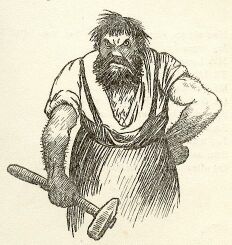See also
Surname list
This page lists people with the surname Horkheimer. If an internal link intending to refer to a specific person led you to this page, you may wish to change that link by adding the person's given name(s) to the link.
Horkheimer is a German surname. Notable people with the surname include:

Max Horkheimer was a German philosopher and sociologist who was famous for his work in critical theory as a member of the Frankfurt School of social research. Horkheimer addressed authoritarianism, militarism, economic disruption, environmental crisis, and the poverty of mass culture using the philosophy of history as a framework. This became the foundation of critical theory. His most important works include Eclipse of Reason (1947), Between Philosophy and Social Science (1930–1938) and, in collaboration with Theodor Adorno, Dialectic of Enlightenment (1947). Through the Frankfurt School, Horkheimer planned, supported and made other significant works possible.
The term culture industry was coined by the critical theorists Theodor Adorno (1903–1969) and Max Horkheimer (1895–1973), and was presented as critical vocabulary in the chapter "The Culture Industry: Enlightenment as Mass Deception", of the book Dialectic of Enlightenment (1947), wherein they proposed that popular culture is akin to a factory producing standardized cultural goods—films, radio programmes, magazines, etc.—that are used to manipulate mass society into passivity. Consumption of the easy pleasures of popular culture, made available by the mass communications media, renders people docile and content, no matter how difficult their economic circumstances. The inherent danger of the culture industry is the cultivation of false psychological needs that can only be met and satisfied by the products of capitalism; thus Adorno and Horkheimer perceived mass-produced culture as especially dangerous compared to the more technically and intellectually difficult high arts. In contrast, true psychological needs are freedom, creativity, and genuine happiness, which refer to an earlier demarcation of human needs, established by Herbert Marcuse.
Borsig is a surname. Notable people with the surname include:
Schmied is a surname of German origin. Its meaning is derived from the German word Schmied, which is a smith. Common variants are Schmidt, Schmitt, and Schmitz.
Schnieder is a German occupational surname for a tailor. Notable people with this name include:

The German-language surname Schmieden or its nobility form von Schmieden may refer to:
Pötzsch is a German language surname. It stems from a reduced form of the male given name Peter – and may refer to:
Klinkhamer is a Dutch occupational surname for a blacksmith. Notable people with this name include:

Kovačec is a Croatian surname. Notable people with the surname include:
Grassmann, Graßmann or Grassman is a German surname. Notable people with the surname include:
Pinkert is a German language occupational surname for a blacksmith which is also to be found among Ashkenazi Jews and may refer to:
Schroedter or Schrödter is a German-language surname. Notable people with the surname include:

Klier is a surname. Notable people with the surname include:
Brenneis is a German language occupational surname for a blacksmith and may refer to:

Klingbeil is a surname. Notable people with the surname include:
Paulssen is a surname. Notable people with the surname include:
Pawelka is a German language surname. It stems from the male given name Pavel – and may refer to:
Pötschke is a German language surname. It stems from the male given name Peter – and may refer to:
Klinkhammer is a German occupational surname for a blacksmith. Notable people with this name include:
Schnieders is a German occupational surname for a tailor. Notable people with this name include: